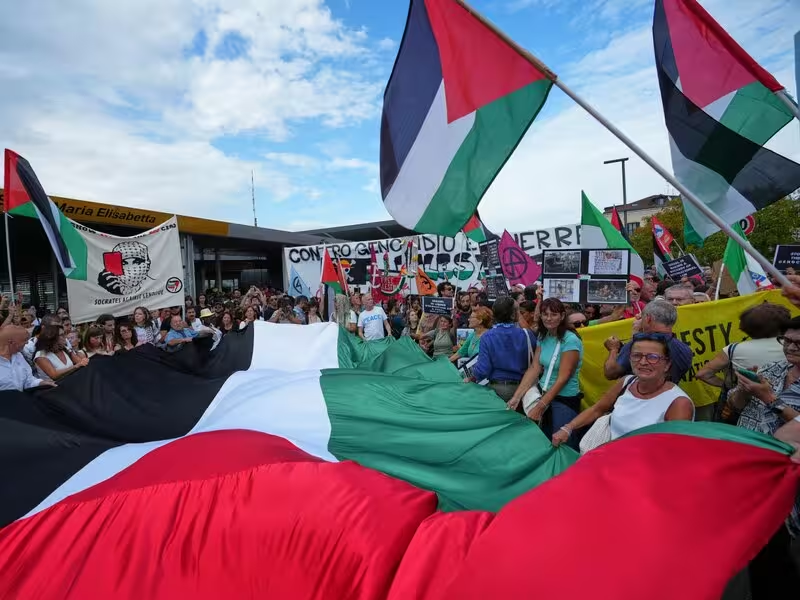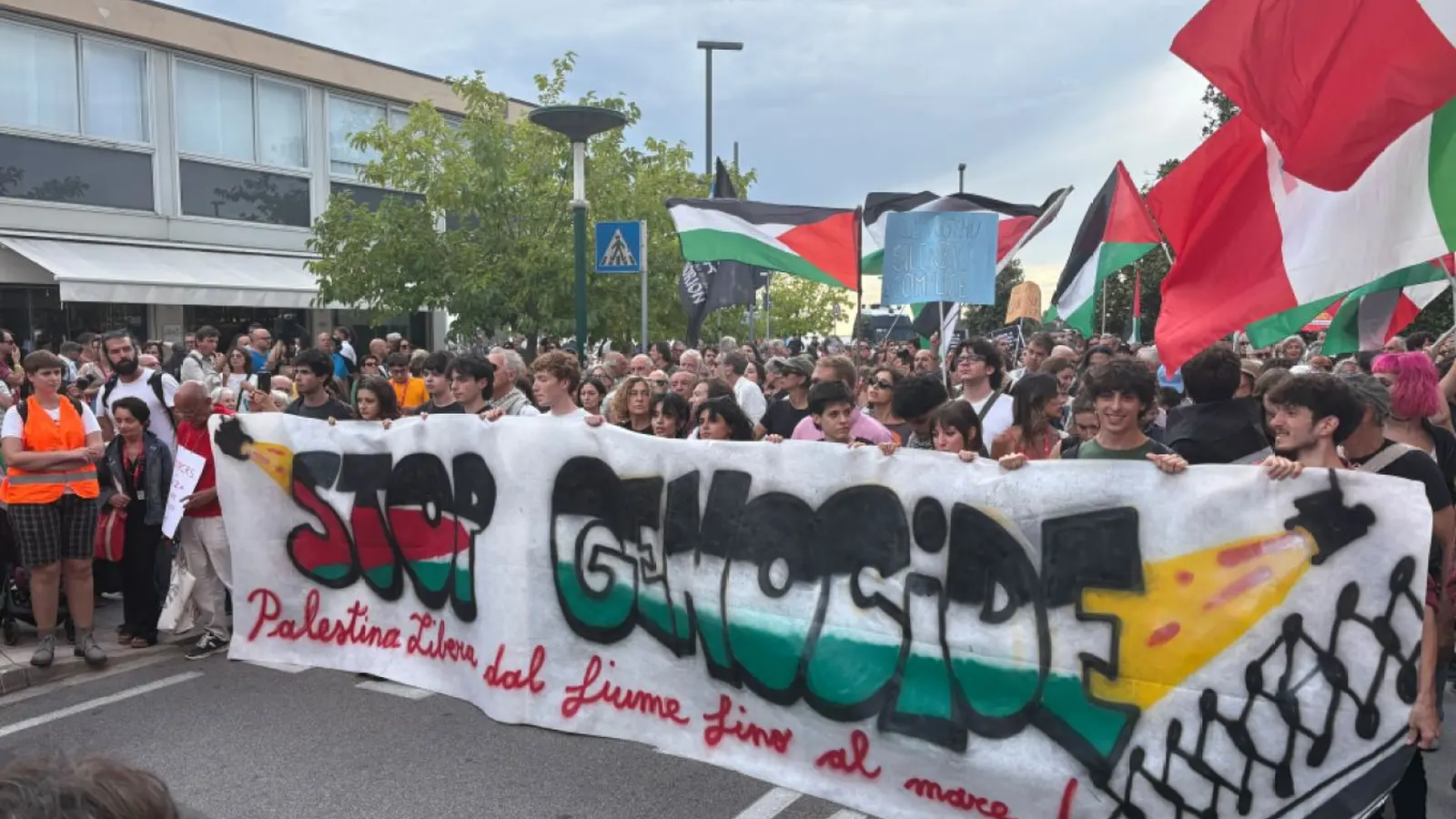5 Minutes
Marching onto the Lido: A festival interrupted
The Venice Film Festival, traditionally a glamorous showcase for auteur cinema and red-carpet premieres, became the epicenter of a mass political demonstration as thousands marched toward the festival grounds to protest Israel's military campaign in Gaza. The scene combined solemn demands and spectacle: a sea of Palestinian flags, chants of 'Free Palestine', flares and foghorns, performers on stilts waving 'Peace' banners and loud music pulsing through the Lido streets.
Why the protest targeted a film festival
Organizers and participating groups framed the march as a deliberate effort to use a global cultural platform to demand visibility for civilian suffering and to call for an end to what they labeled genocide. The rally highlighted a growing trend: major cultural events — from film festivals to art biennales — are increasingly seen as public forums where political and humanitarian crises are aired and contested. For many attendees, the festival is more than a marketplace for movies; it is a stage for conscience.
Festival responses and the delicate balance
Festival officials faced pressure on multiple fronts. Hundreds of filmmakers and artists had urged Venice to condemn violence in Gaza and to reconsider invitations to celebrities who publicly support Israel. Venice's Biennale responded by defending the festival as a place for open discussion and artistic presentation, while festival director Alberto Barbera stressed the importance of keeping invitations open to artists even as he expressed sorrow over civilian casualties. Jury president Alexander Payne chose to focus publicly on cinema, declining to take a political stance.
Comparisons, context, and cultural impact
This moment at Venice echoes earlier instances where cinema events collided with politics: from anti-war demonstrations at film festivals to artists using premieres as platforms for protest. Compared with heavily politicized festivals in recent years, Venice has historically been less overtly political, making this wave of demonstrations especially striking. For filmmakers whose work directly addresses conflict, displacement, or ethics, the festival's atmosphere can shape reception and festival programming.
Industry insiders note that politically charged moments can reshape festival narratives and film publicity. A film unspools not only on screen but within the wider conversation the festival generates; in 2025, films tackling human rights themes may find heightened attention — or sharper scrutiny — because of the charged mood on the Lido.

Critique and controversy: free speech vs. calls to disinvite
The debate raised complex questions: should cultural institutions disinvite artists for their political views, or protect artistic inclusivity even amid moral outrage? Supporters of the protest say cultural silence equals complicity; opponents warn that boycotts risk censoring dialogue. Both positions reverberate across the film industry, where careers, commissions and awards remain sensitive to public sentiment.
Behind the scenes and public reactions
Festival-goers described a carnival-like energy that did not diminish the seriousness of the message. Some attendees welcomed the intervention as necessary moral pressure; others said they felt uncomfortable when activism overshadowed screenings. Social media reactions were split: filmmakers and cinephiles debated whether the festival should pivot from gala glamour to civic engagement.
'Venice has always been a barometer for where film culture intersects with society,' says cinema historian Lucia Romano. 'This protest crystallizes a new phase: festivals are no longer neutral marketplaces. They are arenas where global politics and cinematic art are negotiated in public view.'
Conclusion: What this means for cinema going forward
The protests at Venice suggest that film festivals will continue to be frontline spaces for cultural politics. For filmmakers, curators and audiences, the challenge will be to maintain artistic dialogue without reducing every premiere to a political battleground. The Lido spectacle was a reminder that cinema lives within a wider world — and that the red carpet can sometimes become a conduit for global conscience, altering how films are discussed, distributed and received.
Final thought
Whether you view the protests as an essential act of solidarity or an uncomfortable intrusion, their presence at Venice redefines the festival moment. Expect future editions to wrestle even more overtly with the ethical responsibilities of culture in times of crisis.
Source: variety


Leave a Comment